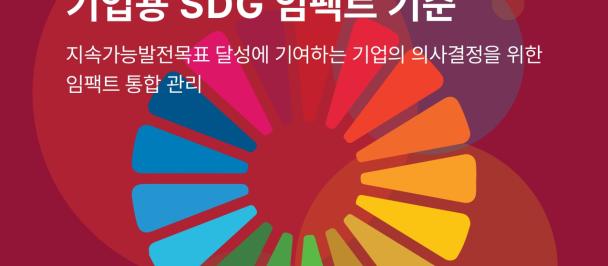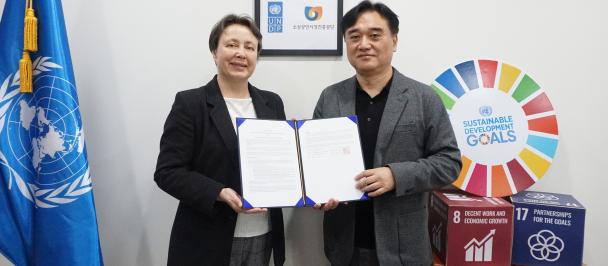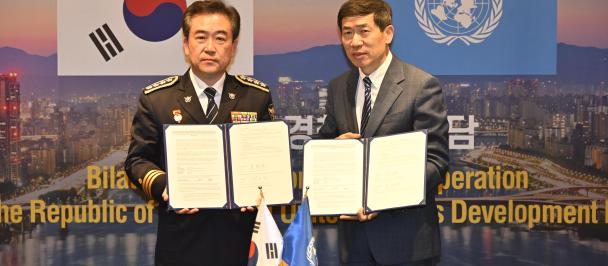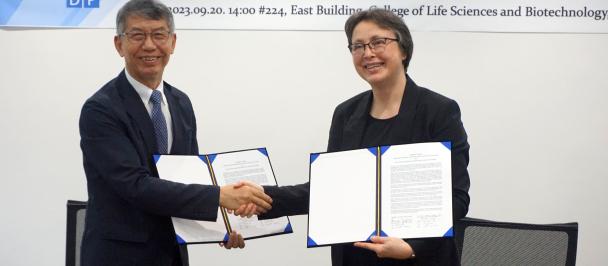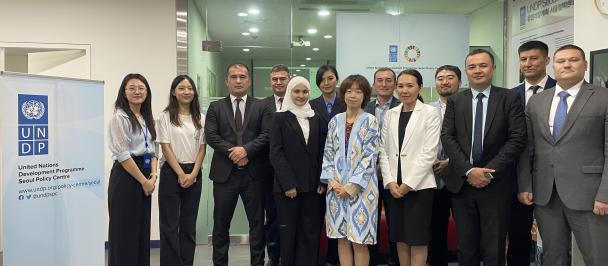As one of UNDP’s six global policy centres, UNDP Seoul Policy Centre (USPC) is a knowledge exchange and expertise hub for development issues, such as gender-based violence, anti-corruption, and sustainable forestry. With its extensive knowledge and network, the centre spearheads the Development Solutions Partnership (DSP) programme to effectively achieve the 17 established Sustainable Development Goals (SDGs). The SDGs are targets set by the United Nations to achieve the 2030 Agenda, which aims at ending poverty in all its forms and strengthening universal peace and freedom for global development. Through the DSPs, USPC shares Korea’s and its own know-how in supporting development specific to each selected partner country. These exchanges that include innovative policy tools, advisory support, and prior experience take place through webinars, research papers, and study visits.
These exchange and communication platforms have an important commonality – they are all supported by peer-learning. Peer-learning, in which information and tools are shared through a wide range of channels, have numerous benefits for supporting global development. It allows countries and partner governments to increase state ownership of related initiatives, form positive and accountable relationships across the globe, and encourage political will towards tackling national issues. In fact, the success of peer-learning has been proven across various UNDP programmes and partnerships around the world, including in the activities of USPC.
One of USPC’s prime examples and results of successful peer-learning is the Lilium Centre, a one-stop service location established in Albania in December 2018. Albania expressed the need to address issues of gender-based violence, specifically sexual violence, which still remains underreported in the country. In this regard, Republic of Korea’s Sunflower Centres, which are located in the country’s hospitals, served as a timely framework. The Sunflower Centre model, which was established in Korea in 2004, is unique in that it provides multidisciplinary, patient-oriented services, including medical, counselling, investigation, and legal support, in a single location. Whereas services were previously fragmented and difficult to access, these government-funded centres have allowed for victims of sexual violence to receive proper and prompt care. Since Albania was selected as a DSP partner in December 2017, USPC has worked closely with practitioners from the Sunflower Centre to share with Albania detailed information on the Sunflower Centre’s operations, management, and services through webinars and study visits. The partnership between Korea and Albania effectively and directly led to the establishment of Albania’s own integrated and specialized centre, the Lillium Centre, for gender-based violence victims and survivors exactly one year later.
To further advance the Lilium Centre’s efficient operation and victim-oriented services, a technical workshop was held in Tirana from 9-10 March 2019 that again, maximized the strengths of peer-learning and peer-to-peer knowledge exchange. Over the two days, practitioners from the Albanian and Korean integrated service centres, Lilium Centre and Sunflower Centre, respectively, gathered to examine and discuss effective approaches in managing their centres and prioritizing victims in its services. This workshop was meaningful in that the Associate Director, Ms. Hyeyoung Park, and medical staff from the Sunflower Centre attended in person to provide crucial support and share learned lessons as institutional peers with similar experiences.
“These channels of communication is essential. Last year, the knowledge experience workshop with practitioners from the Sunflower Centre in Korea helped the government of Albania take the right measures to establish the country’s first Lilium Centre,” commented Ms. Etleva Sheshi, the Head of Gender Equality Sector in the Ministry of Health and Social Protection of Albania. “We look forward to the advancements this workshop will help advance, especially in providing victim-oriented management and services.”
Though government support and policy expertise is essential for sustainable development, this DSP has continued to show that conducive peer-learning is especially pivotal to the success of development partnerships. As one Korean senior advisor for the DSP programme noted, “1 gram of experience may be more effective than 1 ton of theory,” especially in mobilizing political will and interest in policy-oriented solutions for SDG implementation. As seen throughout UNDP’s programmes, and especially at USPC, this 1 gram of experience, if shared, has potential to grow exponentially.

 Locations
Locations